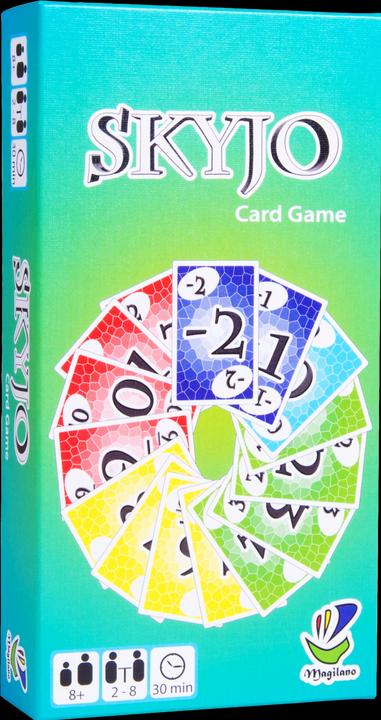

These 5 games will soon brighten a grey autumn
Autumn’s quite an unreliable season. If it’s sunny and golden, it’s time to get out into nature. If not, well, then you just hang around bored inside. The alternative is to bring the family together and play games.
You don’t want the kids to be glued to the Switch just because the weather outside is bad? Then maybe you can get them interested in an afternoon of games. Here are five games that I’ve tested for you. All of them are quick to set up and easy to understand.
L.A.M.A.
Gameplay: The aim of this card game is to discard as many cards as possible. If you still have cards in your hand when one of the players has already finished or stopped playing, you’ll receive minus points in the form of chips. You can get rid of the chips by winning a round. That is, being the first to discard all their cards. By the way, you have to discard the card with the llama as quickly as possible, as it earns you the most minus points.
Who’s it for? L.A.M.A. is for children aged 8+. It’s also fun for young teenagers, because the mixture of luck and tactics works well. In theory, it works for two players, but you’ll have way more fun with three or four players.

Azul Mini
Gameplay: You’re given a game board to play on. Using tactics and skill, you place rows of square tiles on it to collect lots of points. To do this, you collect the tiles with a specific pattern from the centre. However, it’s possible that a fellow player is after the same ones. You have to be clever with where you move and plan in advance to get to your goal.
Who’s it for? Azul is for two to four players, although three or four players is more enjoyable than two. Children aged 8 and above can play the game. They’ll get better at it every year. In the mini version, the tiles are somewhat small and adults need to have dexterous fingers. Placing them firmly in the indents on the game board is good because it stops everything from slipping off.
My colleague Lorenz wrote a detailed review of the travel-sized version of Azul here:
Skyjo
Gameplay: 12 cards lie in front of you in four rows. Each has a numerical value – from minus to plus twelve. Your goal is to turn over your cards tactfully and swap them for ones in the card pile so that you have the fewest points at the end. When a player has collected 100 or more points after several rounds, the game is over. The winner is the player with the fewest points on their score sheet.
Who’s it for?:You have to be good at mental maths. Not only when you’re adding up the points at the end of a round, but also during the game. It’s a question of assessing whether you should really end the round because you’re certain you have fewer points than the other players. That’s why the minimum age of eight years definitely makes sense here. You also need a bit of time for Skyjo. It takes at least 20 minutes, more likely 30, before it’s clear who has won. Skyjo is fun because there’s a nice balance between skilful tactics and luck. This means that children can also win when playing with adults.
Cluster
Gameplay: The rope is a boundary for the playing field. The aim of the game is to place magnetic stones in the area bounded by the rope. Preferably so that they’re not touching each other. If they do, you have to take them. The first player to get rid of all their stones wins Cluster.
Who’s it for?: Cluster is perfect for those who don’t feel like studying long game rules. It’s super easy to understand – even for children of kindergarten age – but the fact that the box says «14+» is misleading. The thrill and anticipation before placing a stone is what makes Cluster fun. You can change the game up by playing it on different surfaces so that the magnetic forces are different. Even on your own, it can be challenging to successfully place all the tiles in the playing field. Otherwise, up to four players can try out their skills.
Just One
Gameplay: In this game, everyone fights on the same team instead of against each other. The aim is to guess a certain word. The player whose turn it is to guess receives clues from the other players, but only one word written on a small board. And the player guessing will only see the clue if no one else has used it. Duplicates are sorted out. For example, say the word is «Egypt». Two out of the four players have written down «pyramids», so the clue is omitted. The other two have written down «Cleopatra» and «Nile».
Who’s it for?: For Just One, you need basic general knowledge and a certain ability to express yourself. It’s also suitable for families because children often don’t think as predictably as adults. So there’s less likely to be duplicate clues for the terms that need to be guessed. Thanks to the 110 cards with a total of 550 words, you won’t be bored.
Your kids don’t think any of these games are cool? That’s also fine, maybe you can go outside into nature and exercise. Good luck!
Journalist since 1997. Stopovers in Franconia (or the Franken region), Lake Constance, Obwalden, Nidwalden and Zurich. Father since 2014. Expert in editorial organisation and motivation. Focus on sustainability, home office tools, beautiful things for the home, creative toys and sports equipment.







